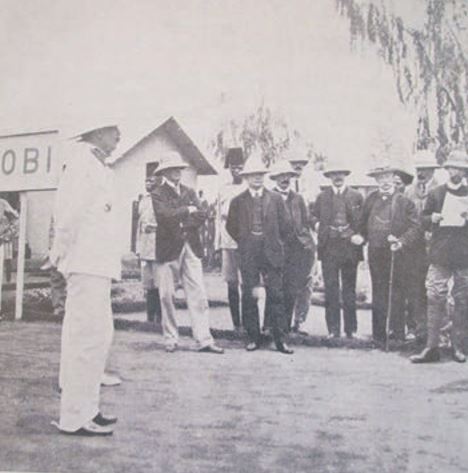×
The Standard e-Paper
Smart Minds Choose Us

Lord Delamere, the son of the 2nd Baron Delamere and his wife, Augusta Emily Seymour, moved to Kenya in 1901, one year before AM Jeevanjee began publishing the then African Standard in Mombasa.
Hugh Cholmondeley, the 3rd Baron Delamere (April 28, 1870-November 13, 1931), styled Honourable, was a British aristocratic peer and one of the first and most influential British settlers in Kenya.